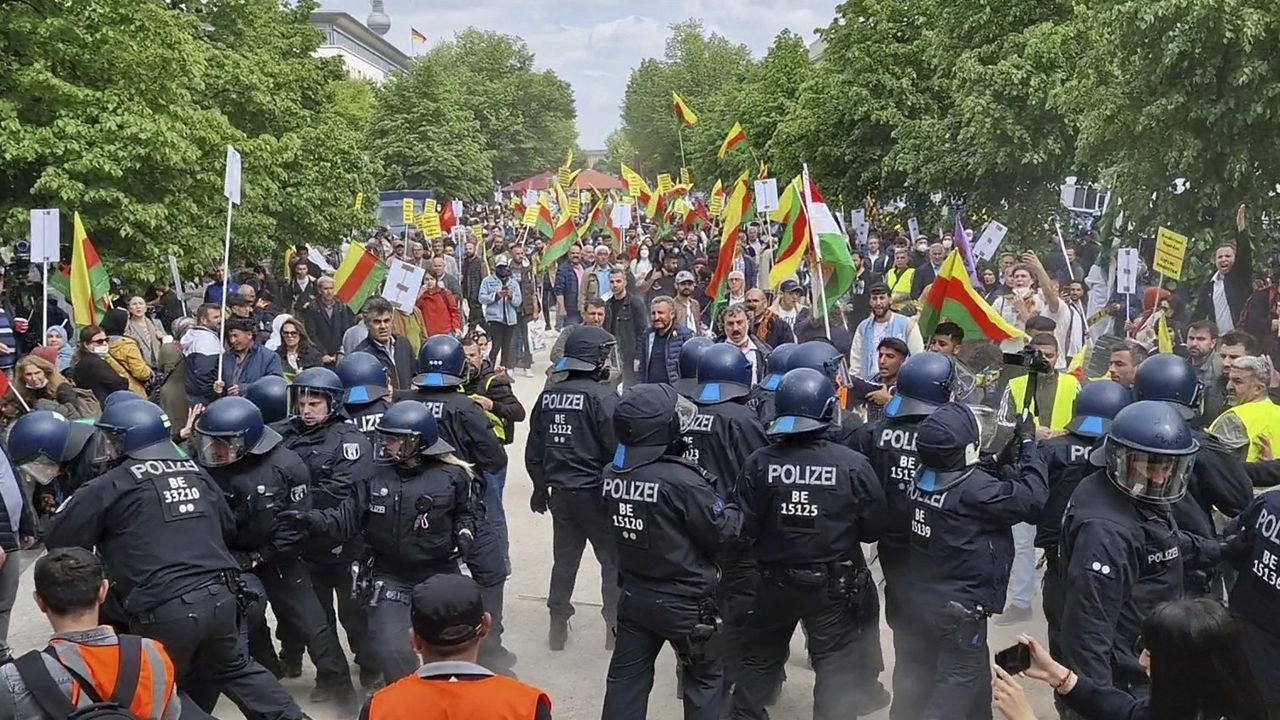PKK sympathizers clash with Belgian police, set vehicles on fire
Belgian police deploys water cannons to disperse PKK sympathizers in an altercation with Turkish-origin citizens in Brussels

Sympathizers of the PKK terrorist group instigated a clash with Belgian police as they were passing through an area predominantly inhabited by Turkish-origin citizens in the Heusden-Zolder district of Limburg province near Brussels.
The incident unfolded on Sunday morning when a group of PKK sympathizers, returning from Nevruz (spring) celebrations, drove through the neighborhood displaying flags associated with the PKK terrorist organization. Their passage was marked by provocative slogans, sparking a reaction from the Turkish-origin residents in the area, leading to a confrontation.
Upon arrival at the scene, police found some vehicles had been set on fire. To restore order, they used water cannons.
Deputy Mayor Yasin Gul of Heusden-Zolder reported that PKK sympathizers had verbally assaulted a Turkish-origin citizen while chanting provocative slogans. He emphasized that such incidents were unprecedented in the 60-year history of the Turkish community in the municipality.
Gul noted that nearly one-fourth of the municipality's population is of Turkish descent. Precautionary measures had already been put in place by local authorities in anticipation of reports suggesting PKK sympathizers from neighboring cities and countries might attend the Nevruz event.
The PKK, designated as a terrorist organization by Türkiye, the U.S., and he European Union, has conducted a terror campaign for over 35 years, resulting in the deaths of more than 40,000 people, including women, children, and infants. The YPG is identified as the PKK’s Syrian offshoot.
Source: Newsroom











